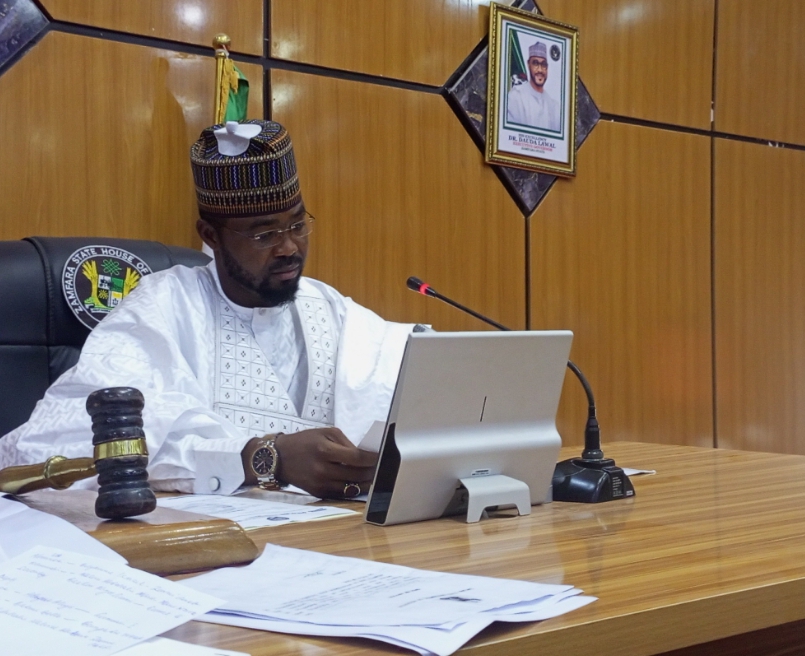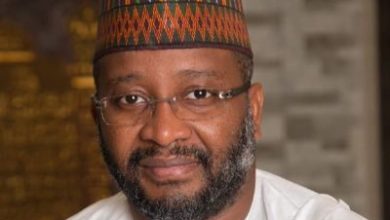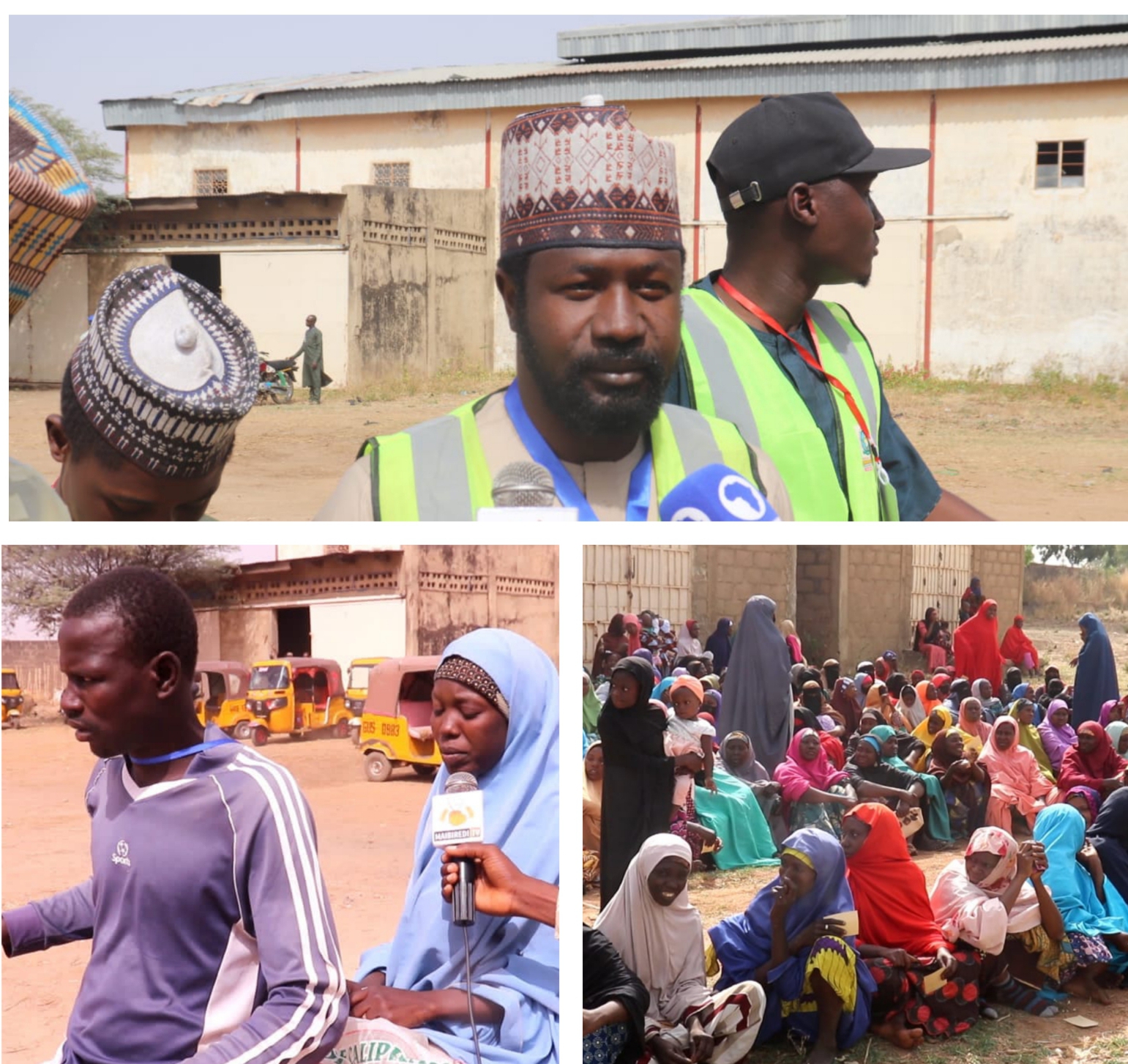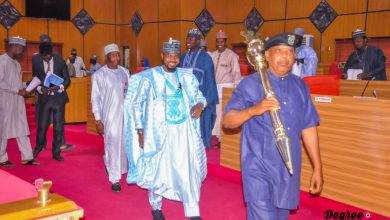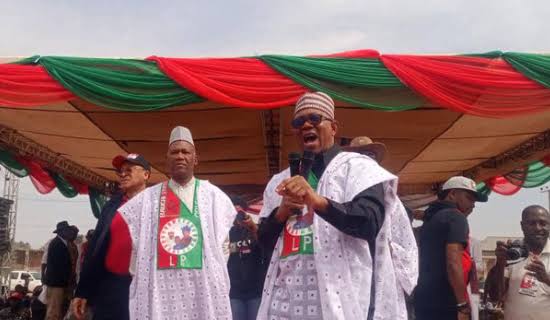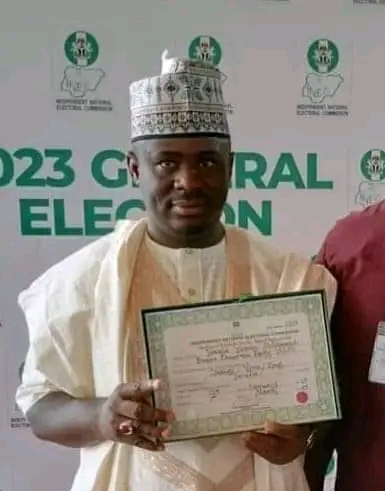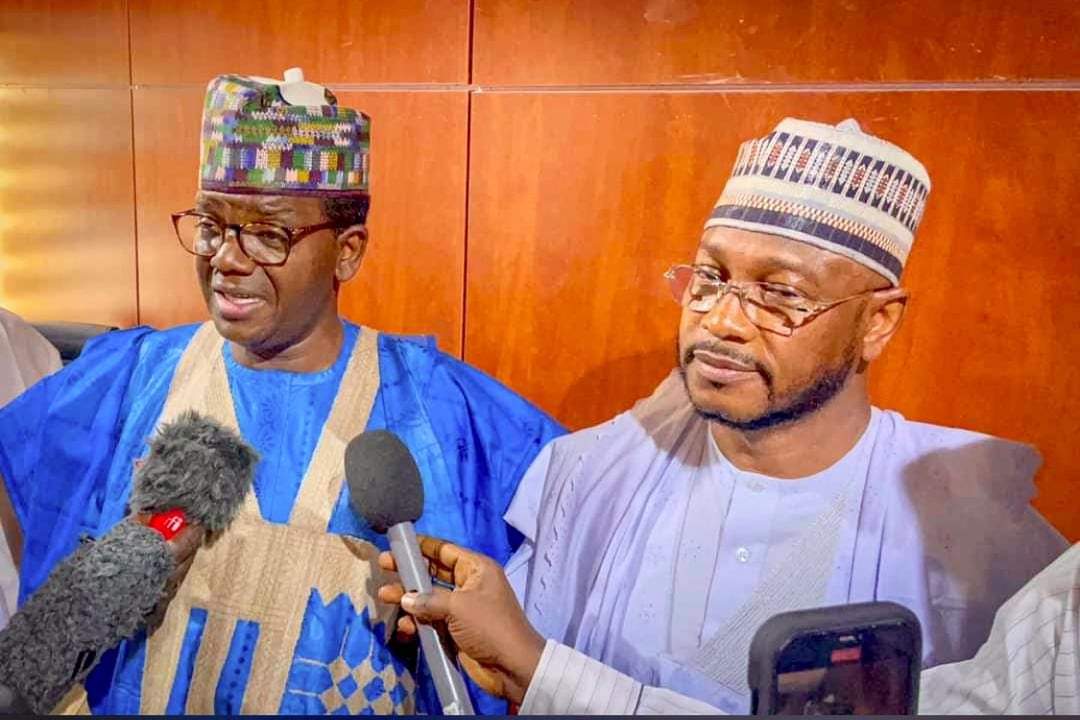
By Suleman Tudu
Governor Dauda Lawal of Zamfara state and the Minister of State for Defense, Bello Matawalle met in Abuja on Wednesday and resolved to collaborate and work together towards tackling security challenges in Zamfara state.
The two leaders met during a two-day roundtable on security in Northern Nigeria organized by the Coalition of Northern Groups (CNG).
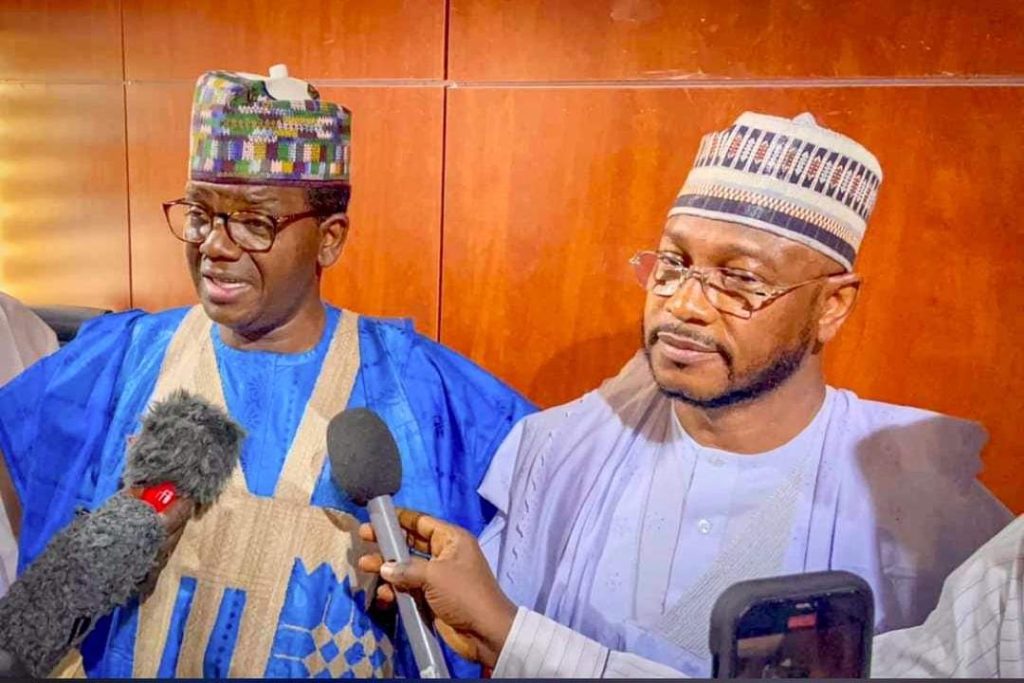
The event which is taking place at the Nigerian Army Resource Centre in Asokoro, Abuja brought key security stakeholders and statesmen from northern Nigeria to discuss critical issues concerning the security challenges of the region.
Governor Dauda who fielded questions from journalists shortly after the Day One session said Governors have limited power on security issues.
“If we’re sincere (about addressing security challenges), we must keep politics aside. Yes, I’m a governor and like you know, a governor neither has a Police nor a Soldier. They are under the federal government,” governor Lawal said.
“Hence, if we’re sincere, there must be a synergy in order to bring succor to the people of Zamfara state,” he concluded.
On his part, the Minister of State for Defense, Bello Matawalle has also expressed his concerns and readiness to join hands with governor Dauda to end banditry and other criminal activities bedeviling Zamfara state.
“This is a problem that a single individual cannot brag about that he can solve. Firstly, we must pray. Secondly, we must clear our minds and work sincerely for the sake of Allah,” Matawalle said.
“I said it before that when I was governor, I never had the contact of the Defense Minister throughout my 4-year term but today, I am a Minister of Defense (for state), so this is a game-changing opportunity,” he added.
Governor Lawal was the successor of Bello Matawalle who governed Zamfara state between 2019 and 2023 and this is the first time they come together after the 2023 general elections.
SMARTS NEWS learnt that people of Zamfara across political parties expressed their happiness seeing the duo leaders together, a sign that they might have resolved their political differences for the overall interest of the state.



